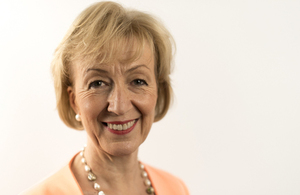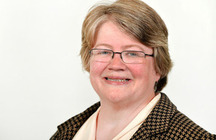

I asked a bunch of NGOs what they thought were Defra’s greatest achievements of 2016; The GWCT, BASC, Butterfly Conservation and Plantlife were, apparently, stumped as they couldn’t come up with anything.
I also asked Defra themselves and they said they’d get back to me – but they didn’t. Just another let down with which to end the year?
Here is what the Wildlife Trusts, Buglife and RSPB supplied:
The Wildlife Trusts
This wasn’t totally straightforward – but we found a few chinks of light. Chink 1: From 1st August, two National Parks were extended – the Lakes and the Yorkshire Dales. This could be good news for wildlife but the record of National Parks for wildlife conservation is mixed and they could be so much better. So the jury is out on this one for now. Chink 2: In November, we heard that Natural England and the Joint Nature Conservation Committee proposed 50 new Marine Conservation Zones (MCZs) for the third phase of MCZ designation in 2017. This is double the amount proposed in either of the previous two phases. So reason for cheer there. And let’s hope that the government listens to its own advisors on this. Chink 3: Also in November, Natural England notified the West Pennine Moors as a Site of Special Scientific Interest.
If picking one of these then we’d go for number 2 – these new protected areas at sea will cover a massive area and form the basis for improved protection of species and habitats at sea (when coupled with effective protection and enforcement of the law). And that’s an achievement.
A final thought – around four fifths of legislation overseen by Defra comes from the EU. This includes our strongest protection for wildlife sites and regulations on pollution of our seas and rivers. So despite being one of the smallest Government departments, Defra now has a huge and vitally important task on its hands in post-Brexit negotiations. Let’s hope there’s plenty of achievements to choose from next year.
Buglife
Bug School Report
Pupil – Defra
Class – 2B
Year – 2016
Subject – Bees and Pollination
After a concerning start to the year when it looked like Defra was stalling on funding a new National Pollinator Strategy she came good with a commitment to fund a new quantitative monitoring scheme for bees and other pollinators in 2017. It was good to also see Welsh Government join in with this initiative. If only fellow pupil Scottish Government would come on board then we would have full island coverage.
After last year’s disappointment, it was pleasing that this year Defra decided to turn down the request from the NFU to use neonics on Oilseed rape despite the School ban. It is not clear if this is a turn around for Defra, perhaps the fact that last year’s derogation did not improve crop yields in the split fields was a factor? Never-the-less – improving.
Subject – Invasive Alien Species
Great to see Defra really attentive and getting involved quickly with the project to eliminate new arrival the Asian hornet. The class is well aware of the threat that this species poses to bee keeping and wild bees, so all were happy that her plan was put in place promptly and nest quickly found and destroyed. Next year we will find out if the nest had unfortunately already got to the point of releasing queens and drones!
However, Defra seems to be dragging her feet over eliminating the White river crayfish, another highly threatening invasive species, and she is burying her head into her school books when it comes to the recent invasion of the Obama worm and Red palm weevil. Everyone is now aware of the growing threats to Class 2B from stowaways in pot plant soil, but when is Defra going to show she is willing to take action? Could permanently affect her grades if not tackled soon.
Subject – Wildlife Protection
As parents have been informed, the list of species protected by the 1981 Wildlife and Countryside Act is very important and must be updated every five years to make sure that the most threatened species are getting the protection they need to survive. JNCC passed the 6th Quinquennial Review to Defra at the end of 2015 but this homework exercise appears to have disappeared without trace. We hope that she has been working on it and, despite the exercise now being six years overdue, we want to see her deliver a public consultation in early 2017.
Clearly the vote by pupils of Class 2B to leave the School is going to create a vast amount of work for pupils in 2017 and particularly for Defra. She has over 900 School rules to assimilate and adapt to the class rule book, and Defra’s admission that between ¼ and 1/3 of these rules will be difficult or impossible to carry forward is of great concern. The public are desperately hoping that she finds a way to do this that does not significantly compromise environmental protection and that she commits to bringing in some high level new rules that will make sure that Class 2B is indeed the first class to leave the environment better than they found it.
RSPB
Defra’s greatest achievement for wildlife this year was their announcement of £1.75 million of funding to turn around the conservation status of the UK’s last two Critically Endangered bird species. This money should enable the RSPB to raise the remainder of the funds needed for a mouse eradication operation on Gough Island in the South Atlantic in 2019. If mice can be removed from Gough, the conservation status of the Gough Bunting and Tristan Albatross should both improve within the next decade as their populations recover.
[registration_form]
Really do think it’s time to scrap Defra as it is, separate out agri business into a new MAFF, and merge all natural environment matters with the CC of DECC. Then at least there would be an SOfS arguing for it at Cabinet.
There is no DECC. See – there is a Sanity Clause after all
The recognition of the beaver as a native species!…………………oh…..that wasnt them………………..
Could it be, if one where to speculate that DEFRA’s choice to back the DGS industry propaganda would be the GWCT’s and BASC’s nomination for DEFRA’s best achievement? Or would that be more in line with what the Countryside Alliance, Moorland association would be theorised to say?